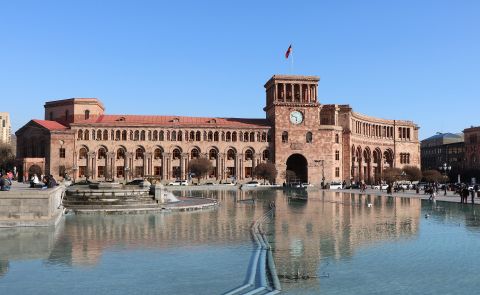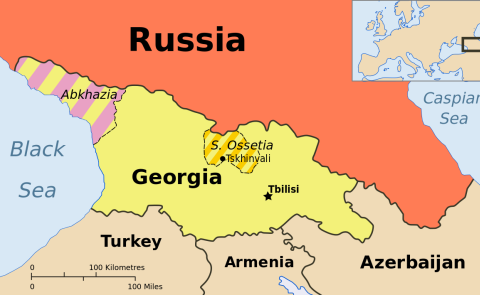
Ninth day of the renewed Nagorno-Karabakh war
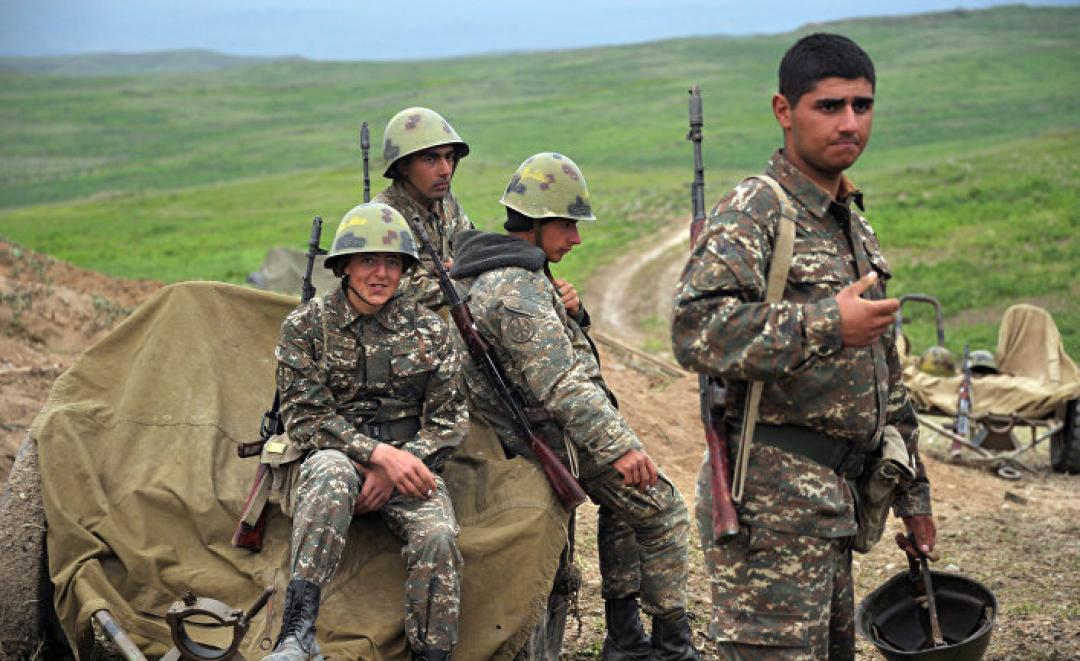
Military developments
On 6 October, Armenia reported that after statements from the international community, in particular, the OSCE Minsk Group co-chairs, the situation on the front line was relatively stable and tense. These statements spoke about the immediate cessation of hostilities and the establishment of a ceasefire in the Nagorno-Karabakh conflict However, the Representative of the Armenian Ministry of Defence Artsrun Hovhannisyan said that the Azerbaijani Armed Forces have launched a large-scale attack in the southern direction of Karabakh.
According to the official sources, more than 220 Armenian servicemen were killed and several hundred were wounded. In terms of civilian casualties 21 were killed and over 80 wounded.
The Azerbaijani Ministry of Defence (MOD) reported that Armenian armed forces fired on the Yevlakh, Goranboy and Beylagan regions. In addition, the Azerbaijani news websites reported that villages in the Aghdam region have been shelled, damaging local businesses. No injuries or deaths were reported. In addition, the website reported that the city of Tartar has also been shelled and as a result, civilian houses and facilities were damaged. Armenian officials have denied that Armenian forces fired upon Azerbaijani territory on the day in question.
A special meeting has been held under the leadership of Azerbaijan’s Defence Minister Colonel-General Zakir Hasanov. During the meeting, the current situation in the ongoing counter-offensive operation was analysed and instructions were given to continue the planned, purposeful and consistent destruction of the forces of the de facto defence army of Nagorno-Karabakh. Hasanov said that if the enemy uses Iskander tactical missile systems, adequate retaliatory actions will be taken. He also ordered the Azerbaijani army to plan large-scale strikes on the military-strategic infrastructure of the enemy by using the high-precision and highly destructive weapons in its arsenal.
The Public Relations Department of the State Security Service (SSS) of Azerbaijan stated that it had intercepted conversations of the PKK who were participating in combat activities against Azerbaijan. According to the intercepted conversations, PKK members discussed the precarious situation on Armenia’s side and numerous losses. The PKK members also talked about how the Azerbaijani side effectively uses drones and regret that they have come to the war zone after being deceived by the Armenians.
In terms of civilian casualties, it was reported that a total of 27 people were killed and 141 wounded. So far, Azerbaijan has not published any military casualties.
Political developments
Armenia’s Prime Minister Nikol Pashinyan travelled to Nagorno-Karabakh and held a meeting with Karabakh’s de facto President Arayik Harutyunyan and the army top brass. During the meeting, Karabakh’s de facto Defence Minister Major General Jalal Harutyunyan reported on the operational situation on the front line, pointing out a worthy counterattack on the hostile actions, and presented the forthcoming steps of Karabakh’s de facto military.
The de facto speaker of Nagorno-Karabakh’s National Assembly Artur Tovmasyan said that the de facto political elites of the region will not ask for a truce. Tovmasyan also said that in the case of negotiations, representatives of the region's de facto political establishment should be involved in the process. Nagorno-Karabakh’s de facto Foreign Ministry criticised the countries that sell offensive arms and ammunition to Azerbaijan. The de facto Ministry of Foreign Affairs said they too bear a share of the responsibility for the crimes against humanity committed by the Turkish-Azerbaijani alliance. In addition, Harutyunyan noted that he was informed that during these few days the donations from Armenians in the diaspora have already reached 50 million euros.
The National Assembly of Armenia approved amendments to defence law during the first reading. “At the moment, the plan for economic mobilisation approved by the president is in effect. The adoption of the law will enable the government to establish a ready-made plan for the mobilisation of the economy, which is also relevant in the context of the hostilities deployed by Azerbaijan and Turkey and the martial law declared in Armenia,” said Armenia’s Deputy Defence Minister Gabriel Balayan.
Azerbaijan’s President Ilham Aliyev received Turkish Foreign Minister Mevlut Cavusoglu in Baku. During the meeting, Aliyev stated that Turkey’s peace policy in the region and in the world is already yielding results in both the Middle East and the Caucasus. “Today's situation in connection with another attack by Armenia once again shows that Turkey has a word both in the region and in the world. Of course, this strengthens and inspires us. Today, both our peoples and the whole world see what the Turkish-Azerbaijani union means,” he stated. Cavusoglu said that Turkey sees the possibility of the ceasefire only through the fulfilment of Azerbaijan’s demands.
Azerbaijan’s Chief Prosecutor Kamran Aliyev released an official appeal to Amnesty International over their statement on Azerbaijan’s using cluster bombs in Stepanakert/Khankendi. “Our experts have identified the use of highly destructive cluster bombs and Smerch missiles by the Armenian armed forces against all targets, including civilian and strategic facilities, which are internationally prohibited. Photos and videos proving this are also attached to the appeal,” he stated.
International reactions
The head of Russia’s Foreign Intelligence Service (SVR) Sergey Naryshkin stated that the Southern Caucasus may become a new foothold for militants from international terror groups. “The escalating standoff in Karabakh attracts militants from various international terror groups like a magnet," Naryshkin underscored. “According to… SVR information, mercenaries from international terror groups fighting in the Middle East, in particular, Al-Nusra Front, the Firkat al-Hamza, Sultan Murad Division, as well as Kurdish extremist groups” could converge in the Nagorno-Karabakh conflict area, he stated.
Naryshkin reminded that while clashes along the contact line in Nagorno-Karabakh happened before, the current escalation causes particular concerns not only by its scale, but also by the qualitatively different effects of external factors. “It is the first time that Turkey acts in favour of Azerbaijan so openly and unambiguously," he noted. At the same time, he expressed his certainty that the sides to the conflict will be able to cease hostilities and return to negotiations.
The United Nations Secretary-General António Guterres condemned the continuing escalation of violence in the Nagorno-Karabakh conflict zone, reminding all sides of their obligations under international humanitarian law to protect civilians and civilian infrastructure. The Secretary-General also underlined that there is no military solution to the conflict and urged the sides to immediately cease all hostilities. He appealed to all relevant regional and international actors to actively exercise their influence to achieve an urgent end to the fighting and return to negotiations under the auspices of the OSCE Minsk Group Co-Chairs.
Amnesty International has corroborated the use of cluster munitions in the shelling of Stepanakert/Khankendi over the past several days. “Over the weekend, footage consistent with the use of cluster munitions in the city of Stepanakert, the capital of Nagorno-Karabakh, was published by the region’s de facto authorities,” the statement read. Amnesty International identified the ordinance fired upon the city as Israeli-made MO95 DPICM cluster munitions.
On a social level, hundreds of people around the globe signed a statement calling for peace in Nagorno-Karabakh.
See Also

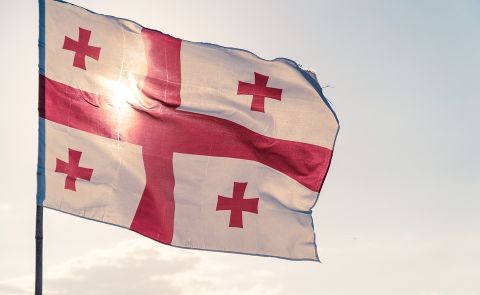
Georgian Bishop Accuses Government Official of Plotting Assassination; Opposition Leader Alleges Husband’s Abduction
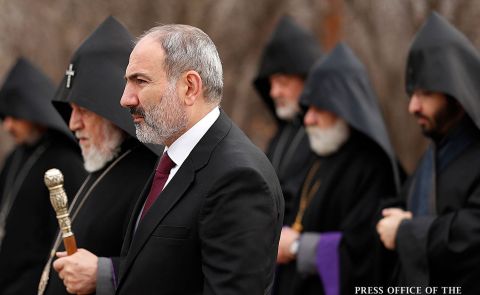
Armenian Government and Church Face Growing Tensions Over Leadership Allegations
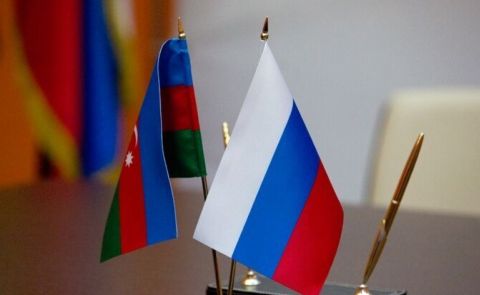
Tensions Rise Between Russia and Azerbaijan Over Medinsky’s Ukraine Conflict and Karabakh Remarks
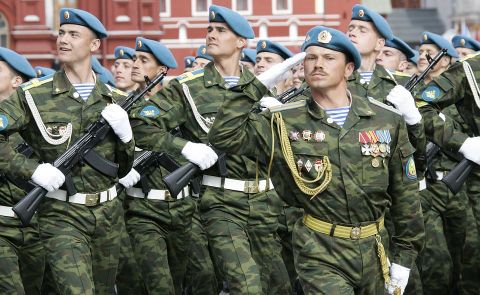
Chechen Official Outlines Conscription Rules for Russia-Ukraine War
